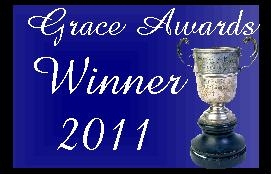 This week, I’ve been reviewing the season finale of ABC’s Missing, which was masterfully written by Gregory Poirier. Monday, I examined his use of flashback; Wednesday, I wrote about how he developed and maintained suspense throughout the show. The flashbacks illustrated how very much the show’s main character, Becca Winstone, whose son has been kidnapped, despised the use of torture. They set up the questions that raised the suspense level as the show progressed: How far will the ex-CIA agent go when Violet, the woman who knows where her son is, won’t talk? What will Becca do when alone with her?
This week, I’ve been reviewing the season finale of ABC’s Missing, which was masterfully written by Gregory Poirier. Monday, I examined his use of flashback; Wednesday, I wrote about how he developed and maintained suspense throughout the show. The flashbacks illustrated how very much the show’s main character, Becca Winstone, whose son has been kidnapped, despised the use of torture. They set up the questions that raised the suspense level as the show progressed: How far will the ex-CIA agent go when Violet, the woman who knows where her son is, won’t talk? What will Becca do when alone with her?
Stated plainly, Poirier made us ask, Will Becca torture the woman?
And the answer is, yes.
In the eyes of some viewers, the main character has now become a superhero every mother can identify with; but in the eyes of others, she has become a ruthless, brutal monster. How does Poirier reestablish sympathy for her?
He shows her reaction to the event.
“Every action has an equal and opposite reaction.” I’ve said before that this law of Physics applies to writing too. When something happens, there must be a response proportionate to the event.
Poirier could’ve skipped this part. He could’ve taken the information Becca gained and jumped straight to the rescue. After all, finding her son is what this season’s series is all about. Maintaining the tension by accelerating the action would’ve been acceptable, because action is the pulse of any good story.
But the character is the heart.
If the action has no consequence to the character, the story loses heart. Knowing this, Poirier takes the extra step of showing his character’s reaction to the event.
And Becca’s reaction was exquisitely portrayed by Ashley Judd. By the time the scene was over, the viewer was certain of two things: what Becca did sickened her . . . and she’d do it again to save her son.
I don’t know how Poirier actually wrote the scene, but I know what I’d do if I were writing it. I’d put it in a compassionate observer’s POV. Watching Becca’s reaction was so powerful, I can’t imagine how it could be surpassed by presenting her thoughts about it. Her eyes were wide and haunted, her jaw set against the obvious revulsion threatening to explode from her depths. She closed in on herself in a way that begged protection from what she had become. But when asked in a tone laced with horror, “What did you do?” her response is cold and succinct. “I found my son.”
Her reaction was proportionate to the event, and just as powerful.
So, there ya go. I’m positive I could squeeze more lessons from this episode, but I think these three alone are worth the blog space.
Use flashback to contrast “what was” with “what is,” and thereby create suspense: While Agent Dax Miller conducts an impotent interrogation of Violet, Becca’s mind flashes back to a time when she rescued a torture victim. Becca, the compassionate agent, is in the same scene as Becca, the determined mother–automatic conflict, tension, suspense.
Heighten the suspense by intensifying the fears of a character. Violet’s fear becomes palpable as Becca describes in minute detail what she’ll do to make Violet talk. And as we feel Violet’s fear, we keep in mind the question derived from the flashbacks, “Would Becca really torture someone?”
Let your character react to the events you’ve created. Becca’s reaction solidified her characterization and heightened viewer sympathy.
All these lessons in a single one-hour episode. Talk about your bargains!
~~~~~
Related posts:
“Excellent Example of Flashback” (#1 in the Missing series)
“A Lesson in Suspense” (#2 in the Missing series)


















I’ve enjoyed these posts, Linda. Sorta makes me want to start watching television again. Then again…now I don’t have to. Thanks!
LikeLike
Won’t get to anyway, Carol. ABC cut the series. Unfortunately.
LikeLike
Characters can do all sorts of horrific things without alienating readers – so long as we can identify with and support their motive. Really, it all comes back to properly portraying that.
LikeLike
I think for the sake of the series, Greg did a great job securing her status as a sympathetic character–a point that’s moot now. But I still think we can learn from what he did.
LikeLike
Powerful stuff. I’ve seen Ashly Judd in other roles, terrific actress. I could visualize the entire scene through your descrptiion. I hope Greg will write other stories. Wow.
LikeLike
Thanks, Ceci. I love Ashely, too. I think I’ve seen everything she put out. That Judd family is *talented*!
Greg also did *Lion King II: Simba’s Pride* and *National Treasure: Book of Secrets” among others.
LikeLike
I agree, a very talented family! I did not realize Greg wrote those scripts. I loved all of those films. Thank you for pointing out this talented writer. And speaking of talented writers, I am very proud to know you, Linda. I tell everyone about this wonderful writer I know from Texas!
LikeLike
Boy-howdy! You just made my day!!! Thank you!
LikeLike